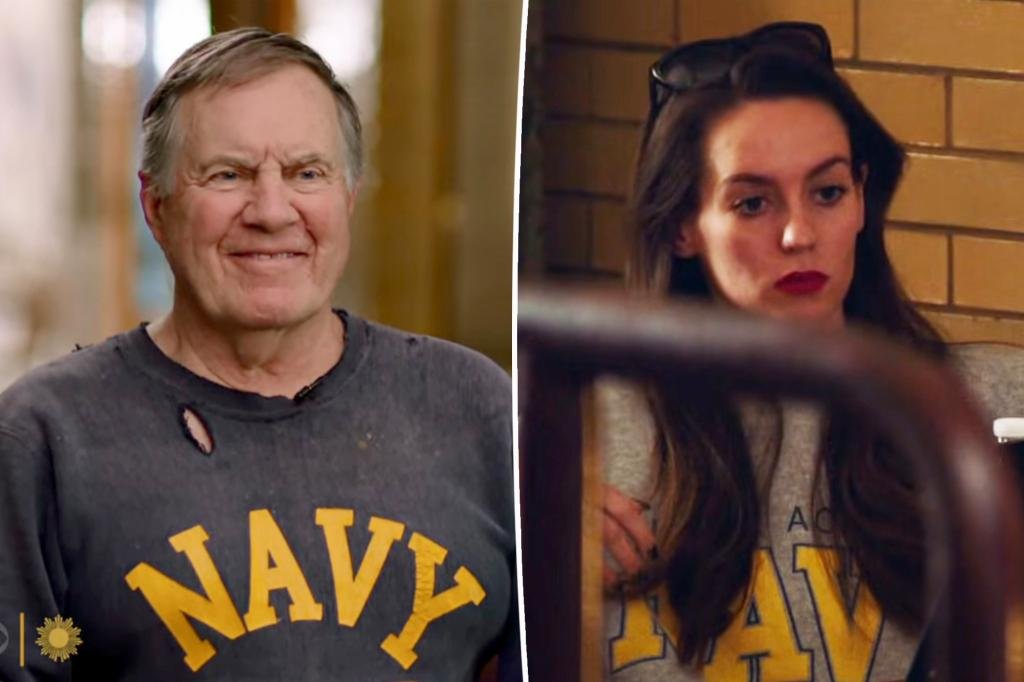Bill Belichick vs. CBS News: A Controversial Interview and Its Fallout
In a recent turn of events, NFL coaching legend Bill Belichick has publicly criticized CBS News for misrepresenting the narrative surrounding his interview on “CBS Sunday Morning.” The interview, initially intended to promote Belichick’s book, “The Art of Winning – Lessons from My Life in Football,” has sparked significant controversy. Belichick claims that there was an agreement to focus solely on his book, while CBS News has vehemently denied such claims, creating a media storm that reveals the complexities of modern interviews, celebrity culture, and the fine line between professional and personal conversations.
The Nature of the Interview Agreement
Belichick expressed disappointment in CBS’s handling of the interview, asserting that he expected discussions to revolve exclusively around his book. According to him, discussions about his personal life, including his relationship with much younger girlfriend Jordon Hudson, were not part of the agreement. CBS News countered this assertion by stating that the interview was intended to be wide-ranging, with no preconditions limiting the topics of conversation. The contradictions between Belichick and CBS’s accounts have ignited debates around expectations and boundaries in interviews involving public figures.
Viral Interruptions and Mixed Messages
Further complicating the situation was the viral footage featuring Hudson interrupting journalist Tony Dokoupil during the interview. In response to a question about how Belichick and Hudson met, Hudson abruptly stated, “We’re not talking about this.” This moment, captured in clips circulated online, contributed to the perception that the interview was less about the book and more about the couple’s personal life. The footage sparked a wave of public criticism, with various commentators suggesting that Belichick was either being “held hostage” or even experiencing elder abuse due to Hudson’s interventions.
Belichick’s Defense of Hudson
In the wake of the backlash, Belichick defended his girlfriend, explaining that her interruptions were aimed at redirecting the conversation back to the book’s contents. He claimed to have repeatedly attempted to steer the discussion away from personal matters before Hudson stepped in. According to Belichick, Hudson’s actions were not about evading questions but rather about ensuring the interview remained focused. The lack of acknowledgment for their 35-minute conversation—described by Belichick as productive—has added another layer to the ongoing controversy.
The Social Media Reaction
The interview fallout generated a multitude of reactions on social media, where figures like Dave Portnoy and Megyn Kelly publicly questioned the dynamics at play. Their comments prompted discussions about the power dynamics in relationships where a significant age gap is involved. Hudson, unfazed by the criticism, responded with her own social media commentary, including a retweet suggesting that Belichick should have confronted the journalist directly. This response further fueled the narrative that the interview was laden with tension and discomfort, overshadowing the intended purpose of discussing Belichick’s book.
The Fallout and Cultural Implications
In a statement from Belichick’s publishing company, they affirmed his intention to focus on football topics during the interview. They articulated that the segments broadcasted deviated from that focus and contributed to a flurry of hostile reactions regarding Belichick’s personal life. Their perspective underscores the broader implications of media representation and public perception, suggesting that the sensational nature of such interviews often overshadows substantive discussions. The controversy raises essential questions about how interviews with high-profile individuals are conducted and framed, revealing the delicate balance between public interest and personal privacy.
Conclusion
The clash between Bill Belichick and CBS News serves as a cautionary tale about the nature of celebrity interviews and the expectations that come with them. As public figures navigate the fine line between promoting their work and managing their personal narratives, the role of media in shaping these stories becomes crucial. The fallout from this specific interview highlights the necessity for clear communication and understanding between interview subjects and media outlets, especially in an age where every comment can be dissected and debated across social platforms. In the end, it remains to be seen how this incident will affect Belichick’s career, his relationship with Hudson, and the public’s perception of media responsibility.


